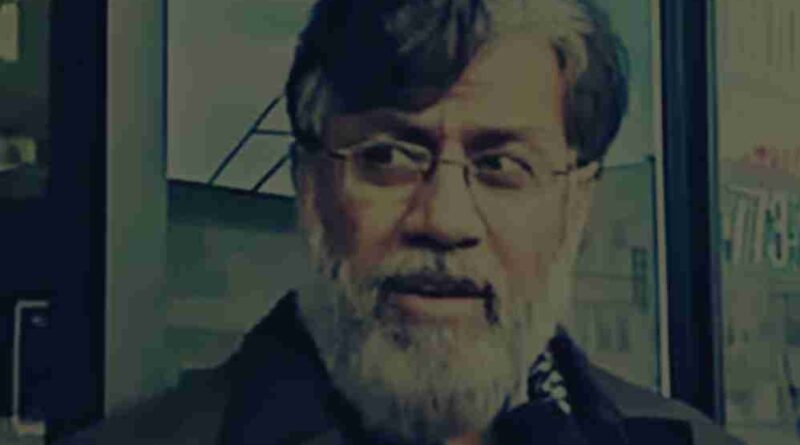Tahawwur Rana’s Legal Maze Deepens as Delhi Court Clears Way for NIA’s Probe
In a significant development that brings renewed focus on the lingering wounds of the 2008 Mumbai terror attacks, a Delhi court has permitted the National Investigation Agency (NIA) to formally interrogate Tahawwur Hussain Rana — a name long associated with one of India’s darkest chapters.
Rana, a Pakistani-origin Canadian businessman currently held in U.S. custody, faces a fresh wave of scrutiny as the Indian government seeks his extradition. The court’s green light for the NIA to question him marks a vital step forward in India’s decade-plus-long pursuit of full accountability in the Mumbai case that left 166 people dead and the world in shock.
Who Is Tahawwur Rana?
Once known more for his medical background and Canadian immigration firm, Tahawwur Rana’s name became infamous when U.S. authorities linked him to the Mumbai terror attacks through his connections with David Coleman Headley — the Pakistani-American Lashkar-e-Taiba operative who surveyed the 26/11 attack sites.
Though an American court convicted Rana in 2011 for providing material support to a different terror plot (against the Danish newspaper Jyllands-Posten), it acquitted him of direct involvement in the Mumbai attacks. However, India has maintained that evidence, including Headley’s own testimony, squarely implicates Rana in providing logistical support to the terror mission in Mumbai.
Court Clears NIA’s Way
In a closely watched proceeding, the Delhi court acknowledged the gravity of the accusations and allowed the NIA to proceed with formal questioning of Rana. The development signals India’s continued pressure to bring every participant in the 26/11 attacks to justice — no matter where they may be.
The court’s nod comes amid ongoing extradition deliberations in the U.S., where Rana remains in custody. Indian authorities, backed by extensive documentation and witness accounts, have long maintained that Rana’s alleged role extended beyond passive support — painting him instead as a critical facilitator who helped Headley pose as a business associate to mask his surveillance operations in Mumbai.
The Pursuit of Justice Continues
For survivors and families of the victims, this latest development reignites painful memories, but also offers a sliver of justice long delayed. The NIA’s renewed effort underscores a key message from Indian authorities: the chapter on 26/11 will not close until every link in the chain is addressed.
According to sources close to the investigation, if extradition is successful, Rana will face interrogation under Indian jurisdiction — potentially opening up new revelations not just about 26/11, but also about broader networks of cross-border terrorism.
Political and Public Sentiment
Unsurprisingly, the move has sparked a mixed response. Security experts have welcomed the court’s decision, calling it a long-overdue step in India’s broader anti-terror strategy. Political leaders across party lines have emphasized the importance of ensuring that those behind mass-casualty events like 26/11 do not evade justice through technicalities or international loopholes.
Meanwhile, the public reaction has been marked by a mix of cautious optimism and unresolved grief. For many Indians, the wounds of 2008 remain fresh, particularly given how openly the attacks were planned and executed. The images of the Taj Hotel burning, the CST railway station under siege, and brave officers like Hemant Karkare laying down their lives still linger in national memory.
What’s Next?
With the court’s clearance in hand, the ball now moves to the diplomatic arena. The Indian government will need to work closely with U.S. counterparts to push for Rana’s extradition — a process known to be arduous and legally complex.
If the extradition is granted, Rana will be brought to India to face trial under the stringent provisions of the Unlawful Activities (Prevention) Act (UAPA), among other charges. The NIA, which has built a comprehensive case over the years, hopes that direct access to Rana will finally unravel more details about how the conspiracy was orchestrated across borders.
A Message That Echoes Beyond Borders
More than just a legal win, this move sends a clear message in the region and beyond: India remains steadfast in its pursuit of justice for the victims of 26/11. As cross-border terrorism continues to be a central security concern for South Asia, holding high-profile accused individuals like Tahawwur Rana accountable is as much about national security as it is about moral closure.
While Rana may have evaded full accountability for years under legal shields and international boundaries, the wheels of justice are now turning again — slowly, perhaps, but with renewed determination.
And for a country that still mourns the terror that ripped through its financial capital one November night nearly 17 years ago, that pursuit matters more than ever.
Disclaimer
The information and content shared on digitalgithub.com — including articles, blogs, news, guides, and other resources — is intended for general informational and educational purposes only. We do not guarantee the completeness, reliability, or suitability of any information. Always seek the guidance of a qualified professional before making decisions based on the information you read. Use this site at your own risk.

